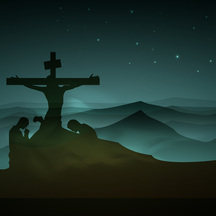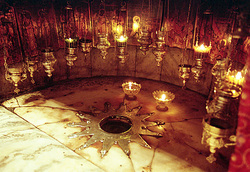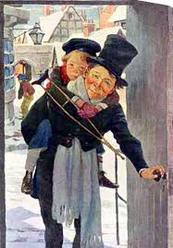
I have a love/hate relationship with this day.
I love redemption from sin, freedom from the penalty of my sin, and liberation from the power of sin. On this Friday when we remember Jesus’ death, I think of being a continual follower of Him. Jesus’ followers during His ministry before the cross who get the most attention are usually the males. Even though I am a male, quite frankly I identify most, at least on this day with the person known as Mary Magdalene.
We don’t know as much about this Mary from Magdala as we think. Much comes from religious tradition—what we might now call “urban legend.” Dan Brown and his revisionist history (Da Vinci Code, et al) do not help with this problem. Ask most people, they will say that Mary Magdalene was a prostitute. That is nowhere to be found in Scripture. We do know that when she encountered Jesus she was demon-possessed. Against tradition again, nowhere can I find that the demon-possessed Jesus encountered were wicked sinners. Why do I say this? Because Jesus delivered them, the Scripture does not say He forgave them. I am not saying they were not sinners. Romans 3:23 makes clear that we were/are all sinners. The demon-possessed were, however, people who suffered under the bondage of evil forces that took over their lives and inflicted all kinds of physical and psychological harm on them.
The gospels tell us seven demons possessed Mary until Jesus drove them out of her. The number seven in Scripture signifies completion and shows in Mary the completeness of the afflicting evil powers’ domination of her. She lost all self-possession and was driven by evil forces. To those who knew her previously she was “out of her mind” because Mary was not behaving like Mary. When the demons left her it must have been like having her own resurrection and walking out of a grave into a new life. The kingdom of God arrived in Mary’s life, and everything changed.
What was it like for Mary on what we call “Good” Friday? The darkness is back. Gloom has replaced hope. On the place of the skull, the One she had lived for is lost to her. The One who defeated evil in her life is now defeated by evil. The One who freed her from the violence she suffered is now suffering violence himself. This is not just a return to her darkness. This is entering into the darkness of Jesus—the darkness of the whole world. This is the devastation of hopes. There is no light—just darkness. But she stays. She listens to the jeers and taunts and watches the suffering. She does not run. She remains in the darkness. She put all her hopes in Jesus so where else is there to go? And, because she recognized that she had nowhere else to go, she stayed through the darkness—all the way through the night, the next day and until Easter morning where she was the very first person to meet the risen Savior.
Maybe you have already been set free in your life and have a relationship of dependence on Jesus. Yet something has happened. The darkness, the violence, the evil that Mary lived through were real. Your darkness, your hopelessness, your torment may be real. You may feel like Jesus has disappeared and will never come back. But because Jesus endured real darkness himself—because He endured forsakenness as He cried out “My God, my God, why have you forsaken me?” If you feel the darkness, the isolation, the despair, the forsakenness at this moment, realize that you share what Jesus and Mary shared.
Faithfulness in darkness, without hope or consolation in the middle of desolation and despair is exactly what was required of Jesus, and in turn, Mary Magdalene. It is also required at times from me and you. Remain faithful this Good Friday no matter what you are going through. Jesus defeated darkness not by speaking a word or waving his hand. He defeated darkness by entering it, and He has entered yours as well. He died the death of the forsaken and abandoned so that even the most forsaken and abandoned could share in the light of His resurrection. In the oft repeated words of Tony Campolo: “It’s Friday, but Sunday’s coming!”









 RSS Feed
RSS Feed